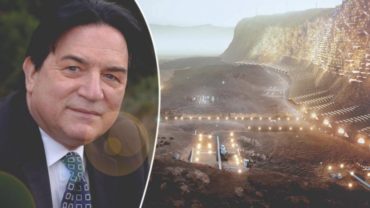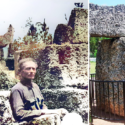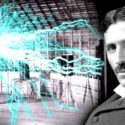10 Mysterious Discoveries That Could Rewrite History!
10: Giants of Nevada
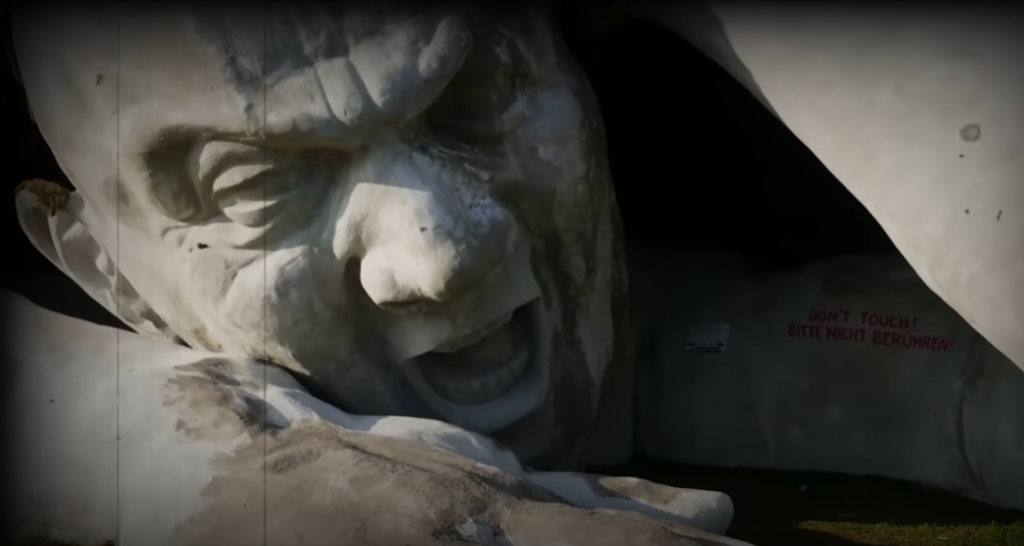
An ancient legend says North America was once the home of a race of giant human beings. They were taller, stronger, and more ferocious than any other men on the planet. They also happened to have red hair and practiced cannibalism! It’s quite a terrifying story, and ancient people would warn their children to beware of the giants.
9: Coins from Atlantis
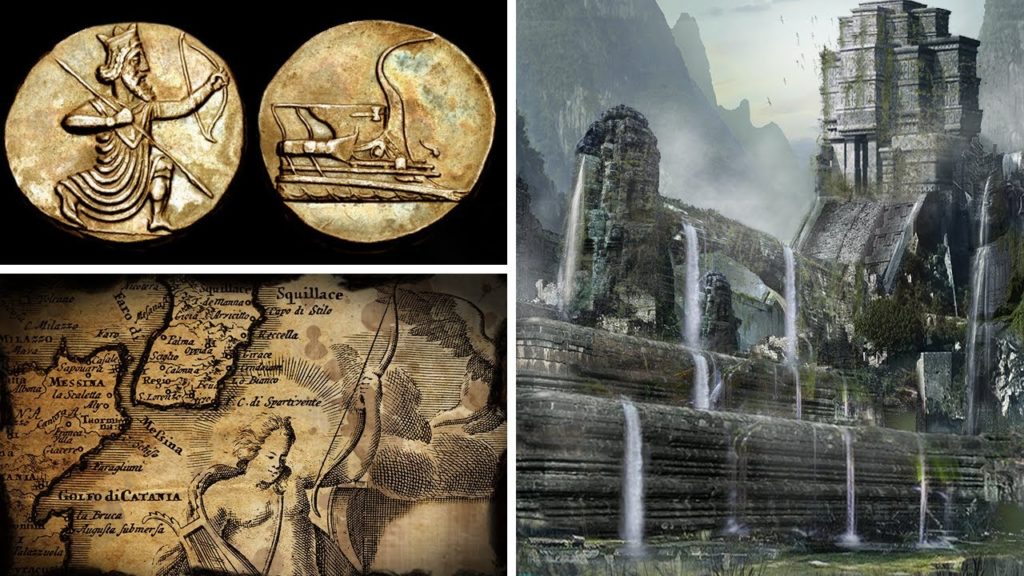
The mystery of the lost city of Atlantis may have just been solved after a researcher-made a revelation analyzing a coin from 2400 years ago. As you may already know, the mythical island of Atlantis was first described by Plato, a Greek writer. He claimed Atlantis was a nation unlike globally, hugely advanced, and insanely wealthy. However, Atlantis eventually fell into the Atlantic Ocean, and all trace was lost. Christos Djonis believes that a coin found over two decades ago could hold the secret of Atlantis’s actual location. The coin was discovered by Mark McMenamin, a professor of geology. It was minted in ancient Carthage in 350 BC, with one side of the coin printed with an old map of the world. This map has revealed the clue to the possible location of Atlantis.
8: Ancient Ghost Tracks
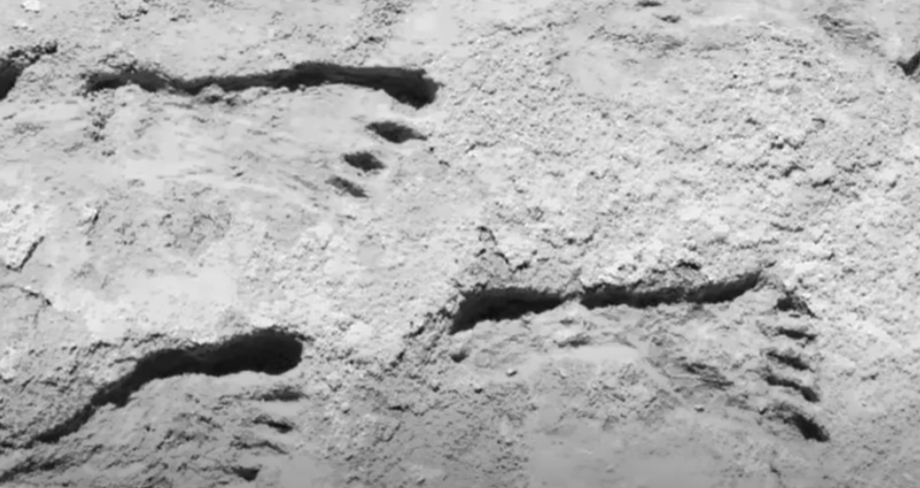
A series of ancient ghost tracks just discovered by archaeologists could force schools worldwide to rewrite their textbooks. These old ghost tracks are human footprints left in the dirt 23,000 years ago. They were found in New Mexico, and scientists prove that humans set foot in America thousands of years before previously thought. Archaeologists have recently agreed that the first humans arrived between 13,000 to 16,000 years ago. But thanks to these ancient footprints, scientists say it happened at least 7000 before that, maybe even 30,000 years ago. Since the prints were found in their natural environment with no alterations, and their dating has been verified, this discovery is unequivocal evidence of earlier migration to the Americas.
7: The Female Hunters
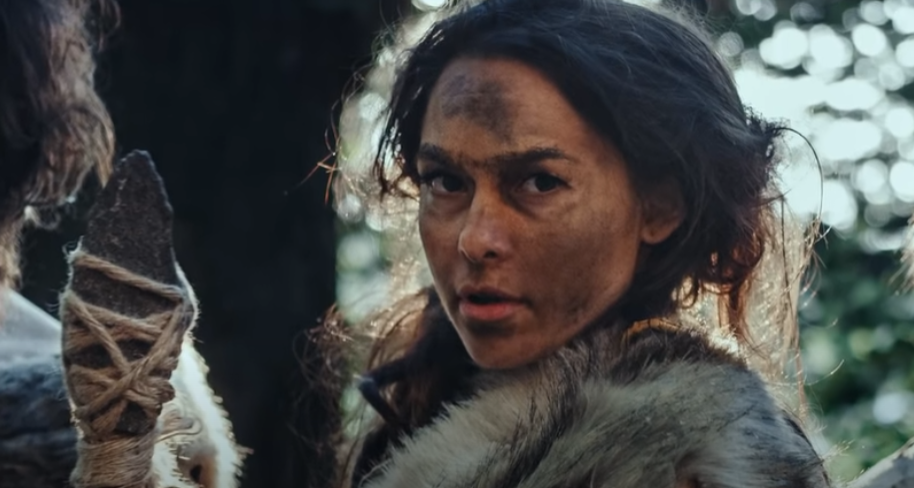
When you think about the earliest hunters in the Americas, you might think of muscled men in loincloths with bows and arrows. But a recent study done by researchers at the University of California says this could be a false narrative. Everything we know about early hunter-gatherers may need to be reworked. For centuries, we’ve been taught that the men hunted and the women gathered. But when archaeologists uncovered the burial site of a female hunter from 9000 years ago in the Andes Mountains, that story changed.
It now appears that women may have participated just as much in the hunting as they did in the gathering. According to assistant professor of anthropology Randy Haas, modern people view our ancient ancestors in these gender-segregated roles because of the world we live in today. However, Randy says it’s clear after multiple excavations in South America that have turned up female hunters that segregation based on sex may be a much newer invention and not something our ancient ancestors even thought about. In other words, separating work based on gender is not natural at all but a cultural and modern invention.
6: Hallucinogenic Cave Drugs
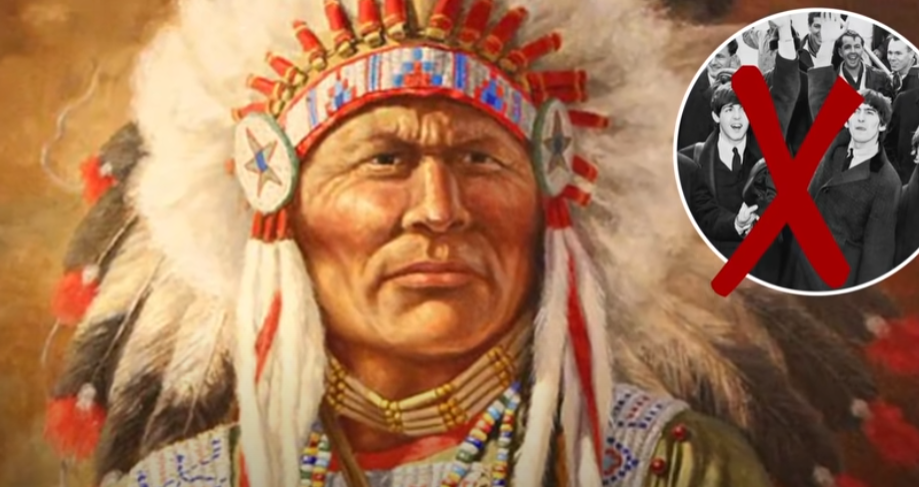
In a California cave, researchers had found remnants of hallucinogenic drugs that may have been used by the natives of the land when they created rock paintings. Researchers have directly linked psychedelics to artistic expression in the ancient world. Believe it or not, this isn’t a new theory. Researchers have believed that hallucinogenic substances have played a role in art for decades.
They’ve always thought that the ancient people were inspired to create art after consuming these hallucinogens. But this is the first time they’ve found physical evidence of it. On the ceiling of the California cave, the researchers found a pinwheel-type painting that depicts the psychoactive plant known as datura. And to make the case even more convincing, they also found the remains of the plant itself, chewed up lumps of the stuff jammed into crevices in the ceiling of the cave.
This shows that it wasn’t the Beatles who did it first – it was the Native Americans. But there might be a different reason for the drugs and the drawings. Some archaeologists say the experts have it all wrong and that the drugs weren’t used to inspire paintings. Instead, some say the images may have been visual aids for drug-induced trips!
5: The T. Rex
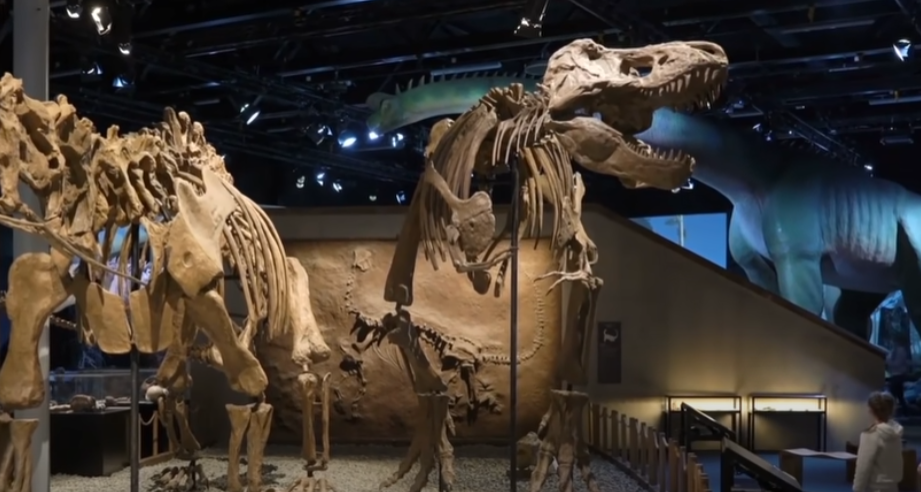
Everything you thought you knew about the T. rex could be wrong. A handful of recent discoveries by paleontologists have changed the scientific understanding of how this monster dinosaur hunted, lived, and even grew. The T. rex was one of the most fearsome creatures that ever walked the land. But unfortunately, it went extinct with the rest of the dinosaurs 66 million years ago after an asteroid crashed into what is today Mexico.
One of the most significant issues with how the public sees the T. rex is how it was represented in the 1993 film Jurassic Park. Interestingly, at the time the movie was made, only about seven skeletons of this dinosaur had ever been found. In the nearly three decades since the film was released, scientists have found dozens more, helping to paint a much clearer picture of this incredible creature.
Perhaps one of the most interesting recent discoveries is that scientists have confirmed the T. rex was such a giant beast that it couldn’t run. The dinosaur would never have been able to sprint after a moving Jeep. It was so big that it would simply fall over and hurt itself if it tried to run. This thing was 43 feet from its teeth to its tail, weighing upwards of 9 tons. It moved at about 3 miles per hour, maximum. Another interesting fact is that young T. rexes were covered in feathers, which they needed to stay warm and keep hidden from predators!
4: Ancient High-Tech Workshop
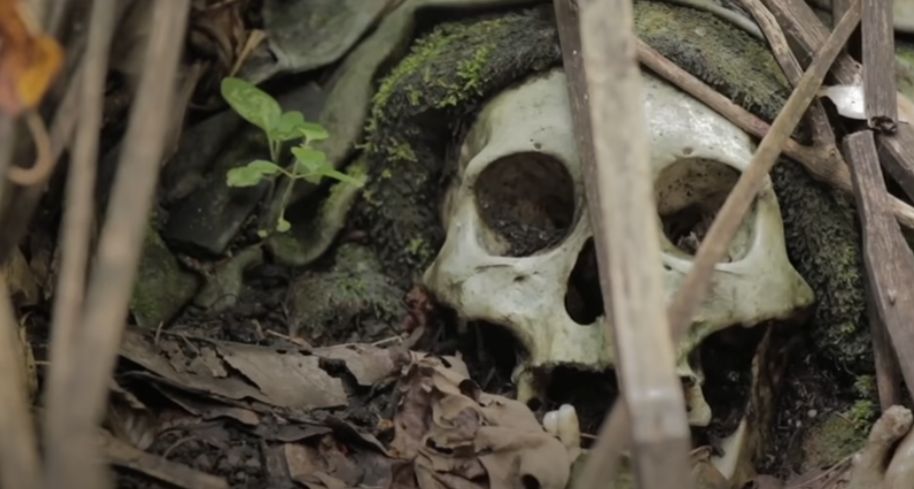
Archaeologists in Israel have just discovered the earliest evidence of a furnace used by humans. This mysterious technology has been branded more sophisticated than anything else developed in the ancient world. And amazingly, it dates back 6500 years.
The shocking discovery was made in the city of Beer Sheva, in the Negev Desert. Archaeologists were excavating the town back in 2017 when they uncovered an old neighborhood. They found a high-tech workshop once used for smelting copper ore inside that neighborhood. According to the researchers from Tel Aviv University, this ancient high-tech workshop employed the very first furnace ever built.
This wasn’t the most advanced furnace you’ve ever seen. It was a small installation, crafted primarily from tin, probably explicitly used for smelting copper ore. What makes the discovery so important to history is that humans weren’t making copper tools during this period, known as the Stone Age. Copper implements have been found, but they didn’t have a sophisticated way to do it. The furnace appears to be a fluke invention in a secluded part of the world, meaning no other civilization on Earth even knew about it.
3: The Dragon Man
The fossilized skull of a creature that’s been nicknamed the Dragon Man may be revealing new clues about how our ancestors transitioned from primitive monsters to the human beings we are today. In other words, this mysterious skull could be physical proof of the actual missing link. The head of the Dragon Man was found near the Dragon River in China, hence the name. It dated back 140,000 years ago. Amazingly, scientists have been able to get a solid idea of what this individual looked like by analyzing his cranium. As he was an adult male, they say this guy had a very pronounced brow line. He also had a massive brain and a somewhat bulbous nose.
2: Nubian Super Church
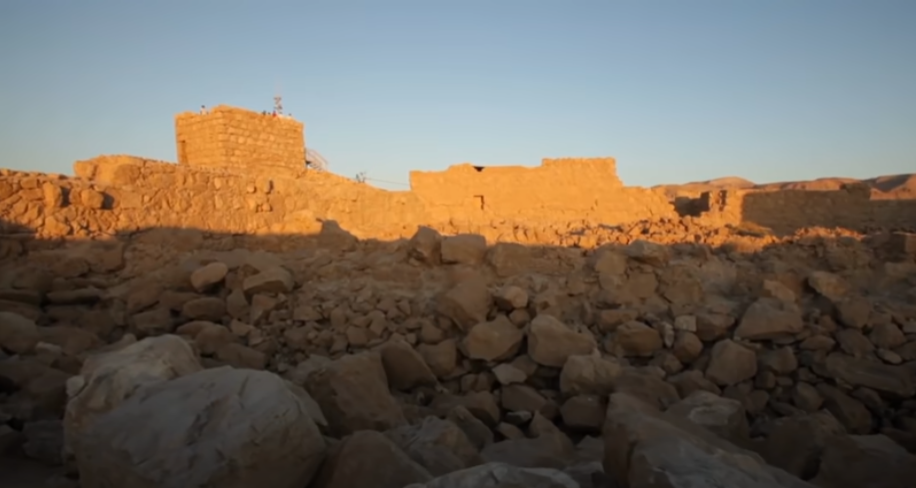
An ancient super church discovered in modern Sudan is changing our understanding of history in this part of Africa. This recent discovery was made in Old Dongola, the capital of ancient Makuria. This was once one of the three Christian kingdoms of Nubia, just south of Egypt. The significant part about the super church is that researchers say it’s the largest of its kind ever identified in Nubia. We need to go back in time to understand why this could change history. Old Dongola was a thriving metropolis for 1200 years.
It functioned from between the 5th century until the 18th century, at which point the city was abruptly abandoned. In medieval days, when the Nubian kingdom converted to Christianity, the city was at its most splendid. This super church was likely the seat of an influential archbishop who governed the area. It was so big that archaeologists claim it was probably used as the seat of power for the entire kingdom during the Makurian period. Whereas Nubia wasn’t considered a powerful Christian empire before, the size, splendor, and luxury of the super church suggest they were a much larger Christian powerhouse than previously imagined. The biggest mystery is understanding why and how they lost power and went extinct in the 18th century.
1: Mysterious Runes
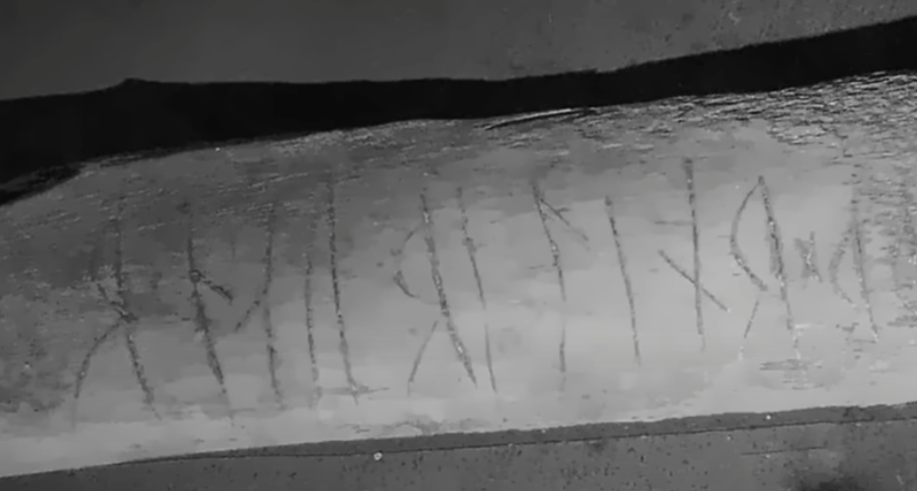
A series of mysterious Runic letters scratched onto a cow bone from the 7th century could change history. This discovery was made in a small village in the Czech Republic called Lany by a graduate student. The student uncovered the rib bone and immediately identified the strange markings carved on its surface as being made by a person. She couldn’t figure out the symbols, but they were artificial. The student’s name is Alena Slamova, studying at Masaryk University in Brno. She took the mysterious bone to her colleagues for additional analysis. They soon realized that the carvings were Germanic runes, a type of alphabet used by Germanic people between the 2nd and 7th centuries AD.

